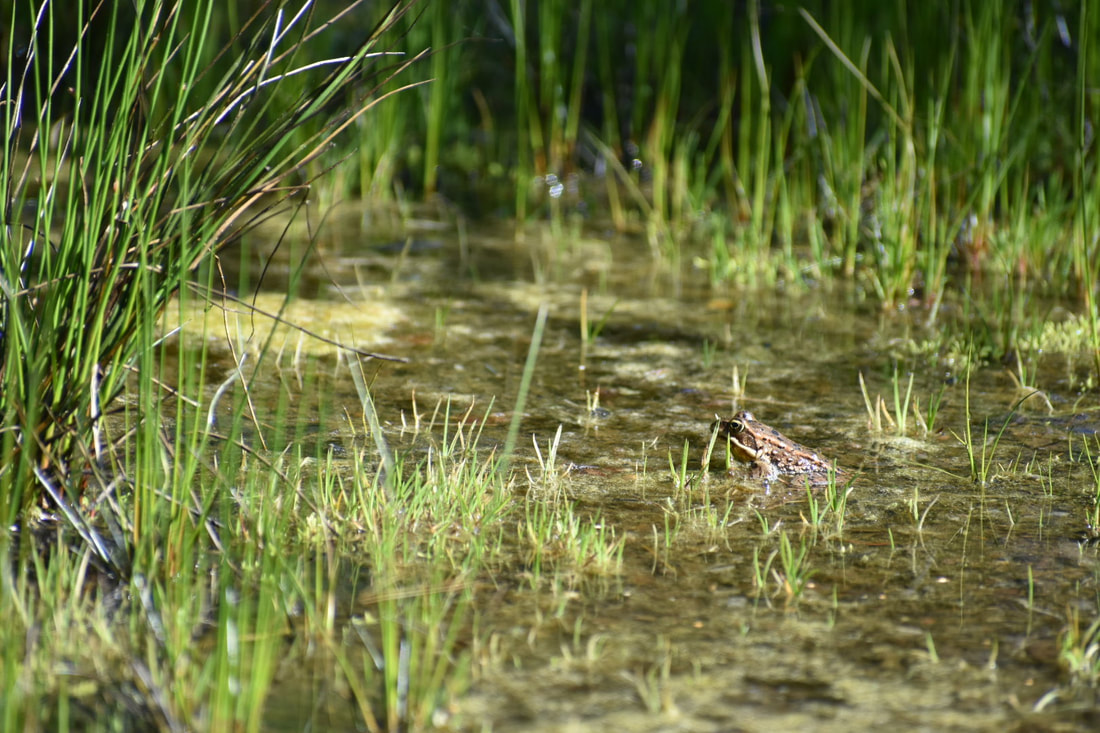decolonizing my science
|
I'd like to first acknowledge that (1) this essay exploring my own decolonization journey is ever-evolving, (2) I am not a decolonization "expert" by any means, and (3) I have an immense privilege in stepping into this work by choice instead of by necessity through background, race, culture, or class. Yet, the first place that we of privilege often fail is in letting guilt obstruct growth, so I share this with you anyways, flaws and all.
|
|
I first encountered the concept of "decolonization" (the active undoing of colonial systems and ways of thinking) in the spring of 2022 while attending a Duke Ecology seminar given by Dr. Madhusudan Katti. His talk, covering a collaboration with Dr. Christopher Trisos and Dr. Jess Auerbach in 2021 ("Decoloniality and anti-oppressive practices for a more ethical ecology"), called for ecologists to center decolonization in every aspect of our work.
Ecology as a discipline and the diversity of those who call themselves ecologists have been shaped and held back by often exclusionary Western approaches to knowing and doing ecology. Ecologists must expand their knowledge, both in theory and practice, to incorporate varied perspectives, approaches and interpretations from, with and within the natural environment and across global systems. Trisos et al 2021 I had heard the term "parachute science" before, but after that lecture I had a whole new vocabulary and direction of research to follow on how to be a more ethical scientist. As a savanna ecologist doing research in formerly colonized regions of southern Africa, I realized I must center decolonization in my work.
Ready to learn more, I later read the work of Tuck & Yang, "Decolonization is not a metaphor". In this seminal 2012 essay opening the inaugural issue of Decolonization: Indigeneity, Education & Society, Tuck & Yang caution well-meaning academics against the metaphorization of decolonization. It can be very tempting, they warn, to treat decolonization as a mindset, a worldview, or an intellectual broadening, instead of an active dismantling of colonial structures. In the same way that land acknowledgements can easily slide into guilt-assuaging placations with no action or dollars behind them, so too can decolonization be misrepresented as a new buzzword for diversity. When metaphor invades decolonization, it kills the very possibility of decolonization; it recenters whiteness, it resettles theory, it extends innocence to the settler, it entertains a settler future. Decolonize (a verb) and decolonization (a noun) cannot easily be grafted onto pre-existing discourses/frameworks, even if they are critical, even if they are anti-racist, even if they are justice frameworks. Since reading the well-known Tuck & Yang paper, I have done a lot more thinking, reading, and acting on this subject. In particular, I have tried to center Indigenous expertise in my research materials, thinking deeply about place names and local expertise especially while working on a paper involving historical river networks and waterholes in southern Africa. This, though, is not enough --- I need to work towards going beyond inclusion of Indigenous knowledge towards more land-oriented action and true power sharing. I'm still working on this part.
Colonialism is about access to Indigenous land and the replacement of Indigenous ways of knowing and living. The opposite of colonialism is not inclusion. Adding more Indigenous texts to a syllabus neither impacts land relations nor changes the dominant knowledge paradigm. In fact, using Indigenous knowledge to enrich non-Indigenous learning has been a core component of colonial knowledge systems that require local knowledge to survive and flourish on colonized land. Whenever I hear the phrase “Indigenous voice” instead of terms like “expertise” I know the uneven power dynamics of Western versus non-Western knowledge systems is firmly in place, through inclusion. -- Max Liboiron, 2021 This is a growing and active project that I will add to over the years, but it is important to start decolonizing my work from the very beginning of my career. In their paper, Trisos et al (2021) propose five positive steps a scientist can take to decolonize their work; I hope to address these five steps in the following ways:
I think their list can be enhanced by the following three pillars of action that broaden the circle of decolonization impacts beyond my own mind and research:
action plan
If you've read this far (wow! who are you?!), I'll just end with a personal note listing my actions and pledges in decolonization. This list isn't meant to be a "look at me, how well I'm doing!" (hence why it's at the very very end), but instead a way to hold myself accountable on what actions I'm truly taking towards a decolonized ecology. I figure, if I update my webpage and see that this list hasn't changed in 6 months, I need to do more.
Fall 2024 goals
|
